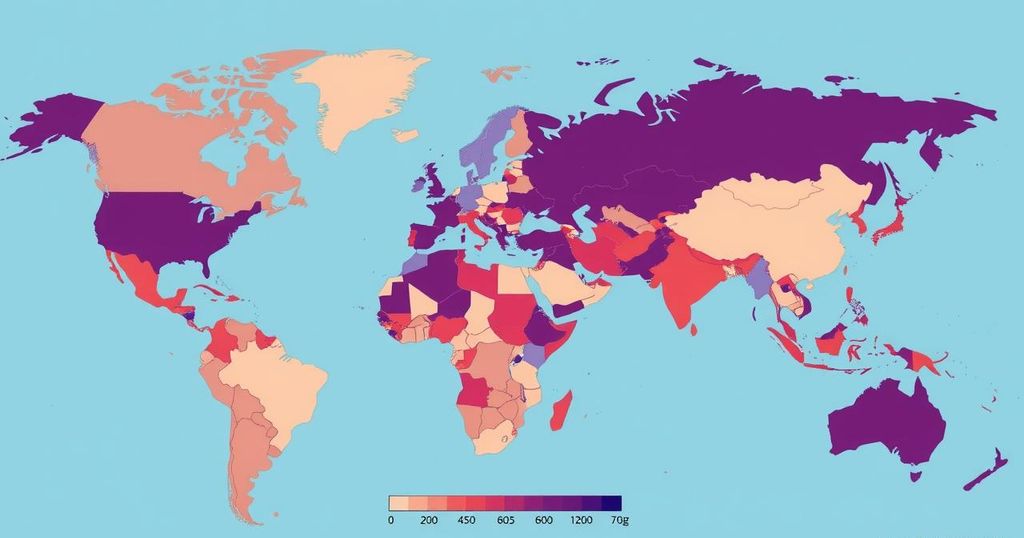Key Lessons from Global Elections in 2024

In 2024, elections across 70 countries showcased diverse outcomes and voter sentiments. Key highlights included Sri Lankan parliamentary elections, victories for Nawaz Sharif’s party in Pakistan, and the challenge to the ANC’s dominance in South Africa. The year saw significant political activity, including protests against electoral fraud in Georgia and Modi’s election in India, indicating shifting political landscapes globally.
In 2024, elections were conducted across 70 countries, yielding diverse political dynamics and results. Voters from nations such as Sri Lanka, Pakistan, and South Africa participated in these pivotal electoral events. For instance, Sri Lankan President Anura Kumara Dissanayake was seen casting his vote in the parliamentary elections in Colombo, while supporters of the Pakistan Muslim League-N celebrated victories in Lahore. In South Africa, voters faced what many considered the most significant elections in three decades as they sought to challenge the long-standing dominance of the African National Congress. Further significant developments emerged in Romania, where a runoff presidential election prompted widespread pro-European rallies, and in India, where Prime Minister Narendra Modi aimed for a third consecutive term amid a massive turnout.
The 2024 elections reflected a critical year for democratic processes worldwide, highlighting the varied political climates and levels of voter engagement. Critical events included voter protests in Georgia against alleged electoral fraud, and significant wins for opposition parties in multiple countries. Socio-economic issues, such as poverty in South Africa and political strife in Moldova, played a vital role in shaping voter sentiment and participation. As countries navigated their electoral landscapes, the global implications of these elections were keenly observed, illustrating a shifting tide in international political power.
The elections held in 2024 across 70 countries reveal a complex interplay of political triumphs, public discontent, and shifting societal values. From the overwhelming victory of Prime Minister Sheikh Hasina in Bangladesh amidst allegations of electoral manipulation to the noteworthy challenges faced by the African National Congress in South Africa, these events underscore the ongoing evolution of political landscapes. Ultimately, the outcomes illustrate a significant moment in democratic engagement as populations worldwide express their political agency.
Original Source: www.nashuatelegraph.com







